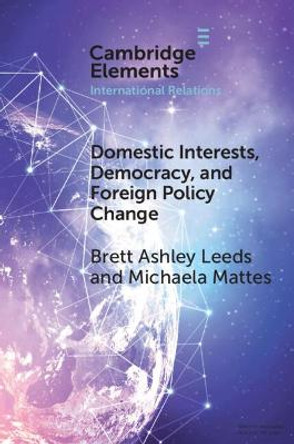The United States has been marked by a highly politicized and divisive history of foreign policy-making. This study asks why the nation's leaders find it so difficult to define the national interest. Peter Trubowitz offers a new and compelling conception of American foreign policy and the domestic geopolitical forces that shape and animate it. Foreign policy conflict, he argues, is grounded in America's regional diversity. The uneven nature of America's integration into the world economy has made regionalism a potent force shaping the national interest. As Trubowitz shows, politicians from different parts of the country have consistently sought to equate their region's interests with that of the nation. Domestic conflict over how to define the "national interest" is the result. Challenging dominant accounts of American foreign policy-making, this text exemplifies how interdisciplinary scholarship can yield a deeper understanding of the connections between domestic and international change in an era of globalization.
AwardsWinner of American Political Science Association Politics and History Section: J. David Greenstone Award 1999.
Book InformationISBN 9780226813035
Author Peter TrubowitzFormat Paperback
Page Count 370
Imprint University of Chicago PressPublisher The University of Chicago Press
Weight(grams) 567g
Dimensions(mm) 23mm * 16mm * 2mm






